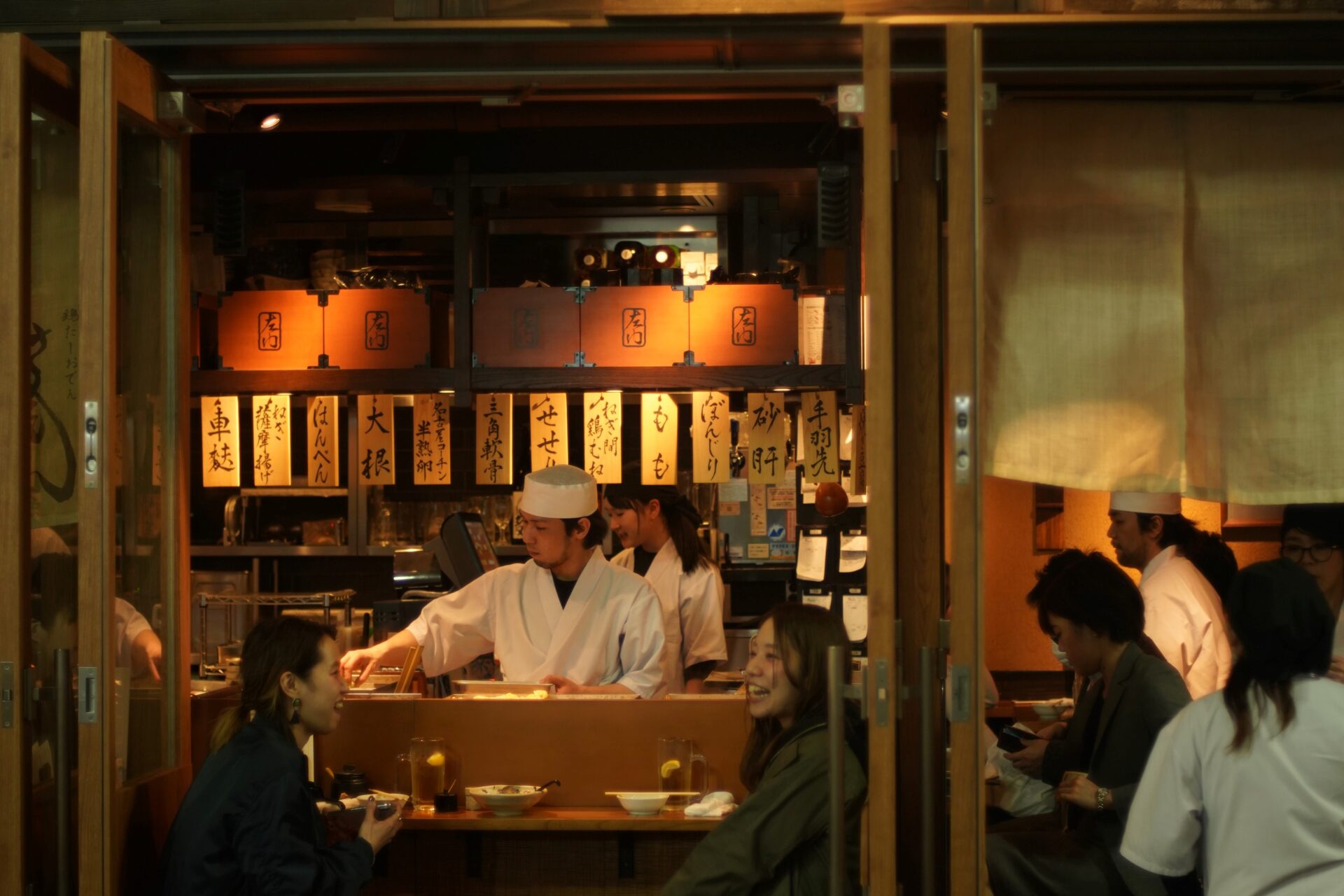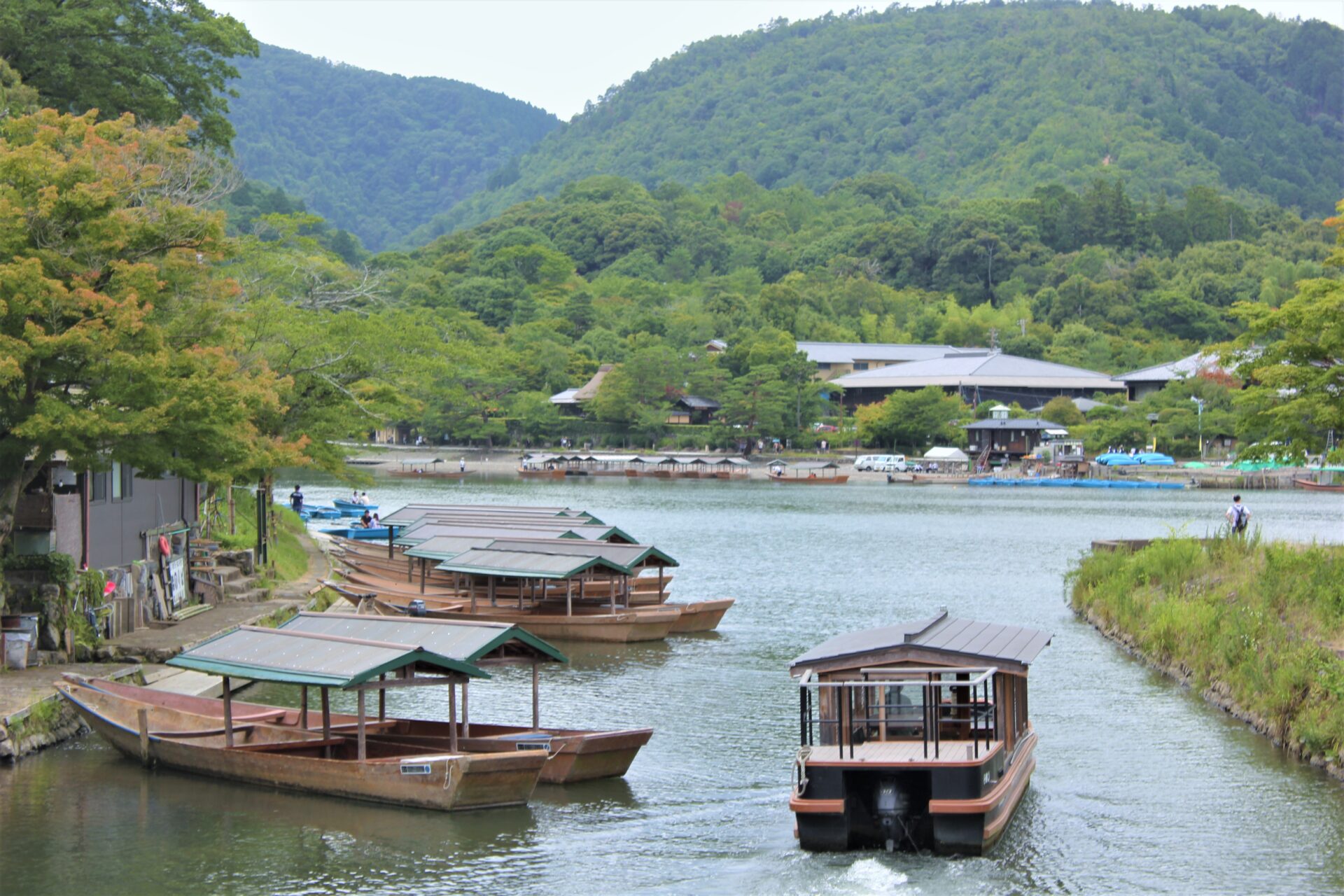What do you want to do when you come to Japan? Sightseeing? Relaxing at onsen? Shopping for souvenirs? There are many activities, but don’t forget to have some delicious Japanese treats. (Sushi, ramen, udon, soba, nabe… Mmm, Japanese food all looks so delicious!) However, when you go to a Japanese restaurant, the language barrier might be quite troublesome. It may be easier if you use a translation app, but let’s try to order your food in Japanese to add to the experience! Here are some Japanese phrases you can use at Japanese restaurants to place your order. You can learn more basic greetings and useful expressions for traveling in this article.
1. Making reservation
Before going to a restaurant, you may want to ask in advance about its opening hours and regular holidays, or you may want to reserve a seat. Recently, internet reviews sites often contain basic information about local restaurants, but unfortunately the English coverage is limited. So, if you can’t get access to the information you need, you may have to call or email to contact the restaurant directly. Here are some useful phrases related to questions and reservations that you can say or use in Japanese by phone or email.
What are your opening hours?
この店の営業時間はいつですか?
Kono mise no eigyō jikan wa itsu desuka?
“いつ (itsu)” is the word for “when” in English. It is one of the Japanese interrogative pronouns that you can use when you want to know the time. 営業時間 (eigyō jikan) means opening hours.
When are you closed?
この店の定休日はいつですか?
Kono mise no teikyūbi wa itsu desuka?
定休日 (teikyūbi) means “regular holidays”. As a small tip, let’s learn how to say “days” in Japanese here.
| Meaning in English | Japanese words | Pronunciation |
| Monday | 月曜日 (げつようび) | Getsuyō-bi |
| Tuesday | 火曜日 (かようび) | Kayō-bi |
| Wednesday | 水曜日 (すいようび) | Suiyō-bi |
| Thursday | 木曜日 (もくようび) | Mokuyō-bi |
| Friday | 金曜日 (きんようび) | Kinyō-bi |
| Saturday | 土曜日 (どようび) | Doyō-bi |
| Sunday | 日曜日 (にちようび) | Nichiyō-bi |
Can I make a reservation at your restaurant?
この店で予約を取れますか?
Kono mise de yoyaku wo toremasuka?
Most Japanese restaurants accept reservations, but you may not be able to do that at some restaurants, especially those run by a private owner such as small izakaya restaurants. Ask the restaurant in advance if they can accept your reservation.
If you find it difficult to make a phone or email reservation, you can also use a reservation site for Japanese restaurants which is available in English. Here are some suggestions.
2. When you place your order at a restaurant
Now you have arrived at your restaurant. Probably you are very excited about what to order, but if they don’t have any English menu, you may have no idea what each name of the dish means. In such a case, feel free to ask the restaurant staff. Surely, they try to answer your question as much as they can.
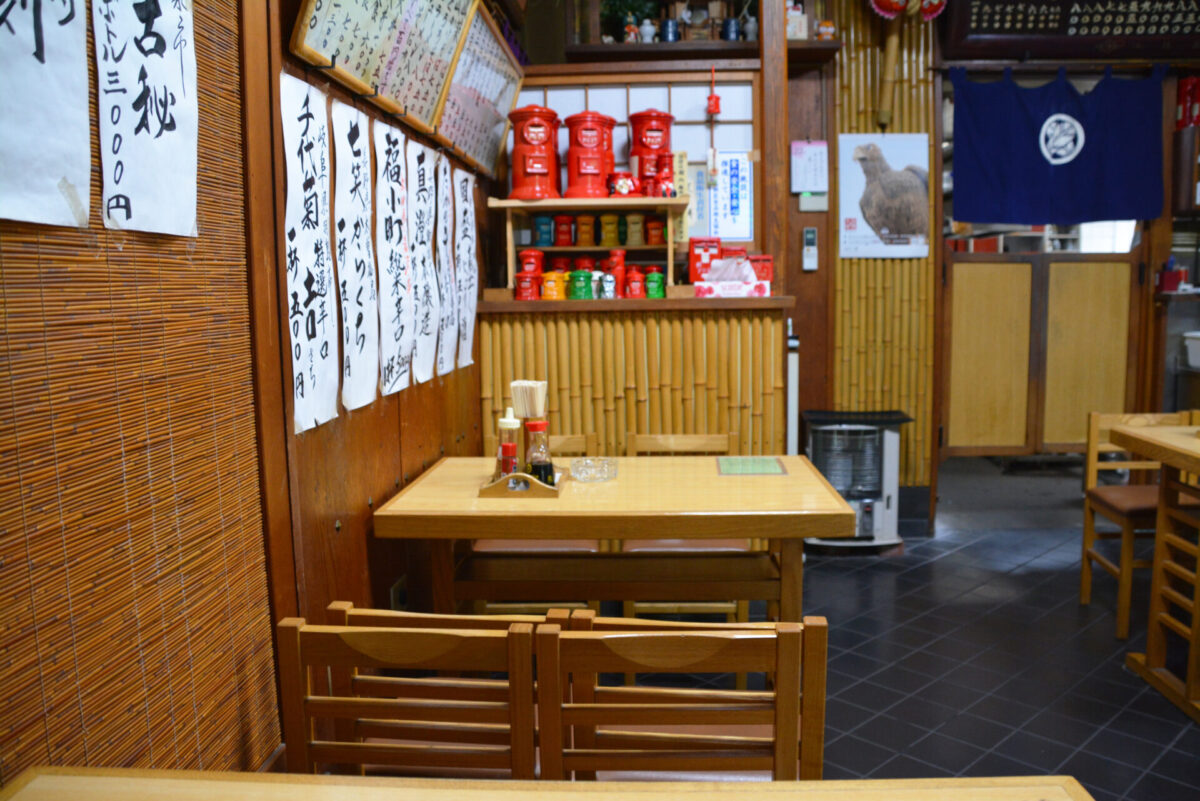
(Pointing at the menu with your forefinger) What kind of food is it?
この料理はどんなものですか?
Kono ryōri wa donna mono desuka?
Here are some Japanese words about foods that you might hear as an answer from the staff.
| Japanese word | Pronunciation | Meaning in English |
| 肉料理 | Niku ryōri | a meat dish |
| 魚料理 | Sakana ryōri | a fish dish |
| 野菜料理 | Yasai ryōri | a vegetable dish |
| スープ料理 | Sūpu ryōri | Soup |
| デザート | Dezāto | Dessert |
I can’t eat XX.
(XX) が食べられません。
(XX) ga taberaremasen.
E.g. Butaniku ga taberaremasen. (I can’t eat pork)
Niku ya sakana ga taberaremasen.(I can’t eat any meat and seafood)
or simply say, Watashi wa vegan desu. (I am vegan)
You may have some kinds of food you can’t eat due to your religious reason or allergy. Saying this phrase helps them understand your dietary restriction. However, be aware that not always your food request will be accepted, depending on your meal. If you are a vegetarian or vegan, you can visit restaurants for vegetarians and vegans as an option.
Can I have this?
これ、お願いします
Kore, onegaishimasu.
When you finally decided what to order, pointing at the menu and simply say this phrase to place your order!
3. Asking questions at a restaurant
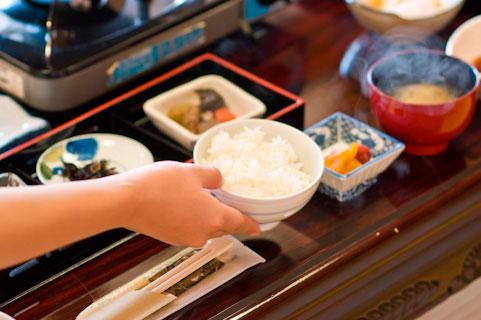
Do you have a restroom here?
お手洗いはありますか?
Otearai wa arimasuka?
トイレはありますか?
Toire wa arimasuka?
Both お手洗い (otearai) and トイレ (toire) mean “toilet”, but otearai is a more polite way to say it.
Can I have this food to go?
この料理はお持ち帰りできますか?
Kono ryōri wa omochi kaeri dekimasuka?
This is a convenient phrase that you can use when you want to bring your food back to your hotel. Please note that depending on the restaurant, you may be charged with the additional price for the container and bag to take home. The cost of a container is usually around 50 yen or less, and that of a bag is around 10 yen. If you don’t need them, say the following sentence.
I don’t need a bag (or container).
袋 (容器) はいりません。
Fukuro (yōki) wa irimasen
4. When you leave a restaurant
After eating a delicious meal, let’s finish your check.
May I have a check?
お会計をお願いします。
Okaikei wo onegai shimasu.
お会計 (okaikei) means “a check after your meal”. Say this phrase to tell you’re ready for a check, then a staff will bring you the bill.
Can I pay with my credit card?
カードでお支払いできますか?
Kādo de oshiharai dekimasuka?
The word “Kādo” (card) usually refers to a credit card at restaurants and shops in Japan. Most restaurants accept credit cards, but be aware that some restaurants do not accept them at all. You can ask them in advance if needed.
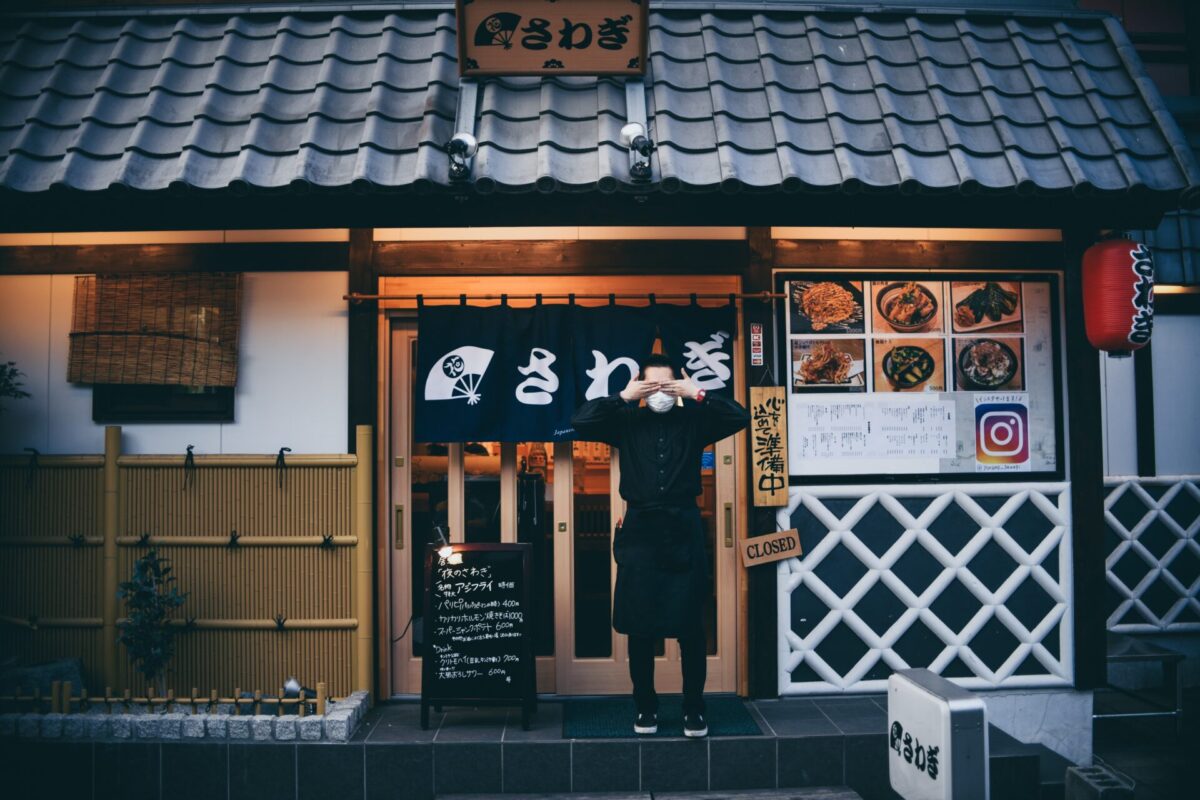
There is no need to tip at the time of your check because the tip culture has not applied to Japan (It’s actually listed as one of the things not to do in Japan). However, the high-end restaurants often charge a service fee in addition to the price of your meal. And at Izakaya, you will pay for Otōshi (お通し), a small dish served as a table fee.
Lastely, don’t forget to say these phrases when you leave the restaurant. The staff will be happy to hear these and give you a smile.
Thank you for the nice meal. It was very delicious.
ごちそうさまでした。とても美味しかったです。
Gochisō sama deshita. Totemo oishikatta desu.
It may seem difficult to order in Japanese. However, communicating with local people in the local language is one of the best parts of traveling abroad. Please try using phrases introduced above to get a whole experience at Japanese restaurants.
Follow us on Instagram, Facebook and Twitter for more travel inspiration. Or tag us to get featured!
Happy travelling!
Other articles you might like


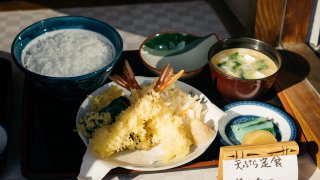

Mao Goto is a Japanese freelancer who was born in Hayama, Kanagawa prefecture, and raised in Tokyo. Since 2016 she lives in the Taito Ward, home to a lot of Japanese culture hotspots such as Asakusa, Akihabara, and Ueno. She has been interested in the field of English education of Japan and got her Master’s degree in March, 2020. A lover of photography, travel, sweets, and cross-stitch. Contact her via Facebook.
This post may contain some affiliate links. When you click through and make a purchase we may receive some commission, at no extra costs to you.
